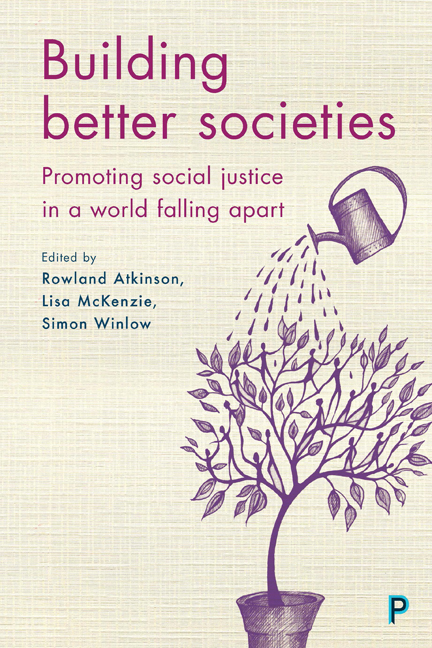Thirteen - The (in)visibility of riches, urban life and exclusion
Published online by Cambridge University Press: 05 April 2022
Summary
On a quiet street in Notting Hill it is possible to find what used to be a defunct pub that now houses a hedge fund office. Outside hangs a repainted sign on which the legend reads ‘Live to live’ as though in response to a request for a fictional coat of arms and motto from the Financial Times magazine. This inscription suggests a celebration of life and all its potential prospects. An alternative interpretation might be that growth, accomplishment and autonomy are potentially limitless for those working inside high finance. Such possibilities belie the ways in which social structures or bad luck restrain the achievements of many (Atkinson, 2015). Yet the grip of the story of personal success and achievement, shorn of its social context, helps to facilitate a zero sum game of ‘if I can win, you will lose’ that is the reality of our business culture and, increasingly, that of political and social life more generally. A key argument of the many contributions in this volume has been that there isa need to celebrate and nurture institutions and support for the shared spaces, infrastructures and services that protect and propel private individuals in publicly oriented societies – yet what we find in many cases is an erosion of these supports. So far so well understood; assessments of austerity, capitalism, crisis and inequality all tells us what we need to know. What we more rarely question is the position and relative legitimacy of the rich and the institutions that support them (di Muzio, 2015). How have the wealthy and a compliant butler class of politicians enabled these inequalities and the spectacular growth of the wealthy?
One way to approach these questions is to consider the position of the wealthy and their relationship to society at large. As the sociologist Richard Sennett once argued, withdrawing from society encourages callousness and a less empathic attitude to others (Sennett, 1992). This chapter focuses on the question of the relative invisibility of the rich, and a related problem – how might we begin to connect the wealthy to the kinds of social problems that are so evident to those of us who live less secluded lives? These themes have a long history in the social sciences.
- Type
- Chapter
- Information
- Building Better SocietiesPromoting Social Justice in a World Falling Apart, pp. 165 - 178Publisher: Bristol University PressPrint publication year: 2017



